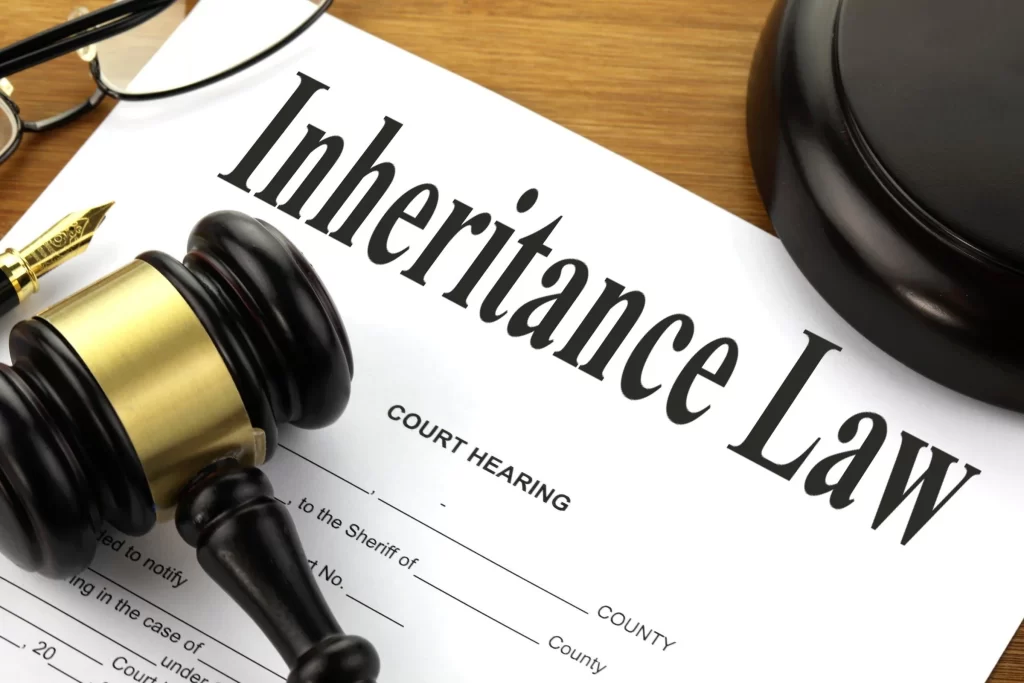In the intricate tapestry of inheritance law, a common question arises: can an inherited property be willed? Delving into the complexities of estate planning and property ownership, this article seeks to unravel the intricacies of transferring ownership of a cherished family heirloom or acquired asset. Join us on this fascinating journey through the legal landscape of inheritance and discover the possibilities that await those seeking to preserve their legacy for future generations.
Understanding the Legalities of Inherited Property
When it comes to the legalities of inherited property, the question of whether an inherited property can be willed is a common one. The short answer is no – once a property has been inherited, it becomes the sole property of the inheritor and cannot be willed to someone else. This is because the property now belongs to the inheritor, who has the legal right to do whatever they wish with it, including selling it, renting it out, or leaving it to their own heirs.
It’s important to understand that inheritance laws can vary depending on the jurisdiction, so it’s always best to consult with a legal professional for specific advice. However, in general, inherited property cannot be willed because the inheritance process legally transfers ownership of the property to the inheritor. This means that the inheritor has full control over the property and can make decisions about its future without needing to seek permission from anyone else.

Exploring the Possibility of Willed Inheritance
In the realm of estate planning and inheritances, the concept of willed inheritance is a fascinating topic worth exploring. Many individuals wonder if an inherited property can be willed to another beneficiary, leading to questions about the intricacies of estate laws and the rights of the original owner.
While the general rule is that an inherited property cannot be willed, there are exceptions to this rule that may allow for the transfer of ownership. For example, if the original inheritor has no living descendants or beneficiaries, they may be able to specify a new beneficiary through a legal will. However, this process can be complex and is subject to state laws, so it’s essential to consult with a knowledgeable estate planning attorney to navigate the nuances of willed inheritance effectively.

Factors to Consider Before Wishing an Inherited Property
Before making any decisions about inheriting a property, there are several important factors to consider. One key factor is the condition of the property itself. It’s essential to assess the current state of the property, including any necessary repairs or upgrades. Additionally, you should also consider the location of the property and its potential for future growth or development.
Another important factor to consider is the financial obligations that come with inheriting a property. This includes property taxes, maintenance costs, and any outstanding mortgage payments. It’s crucial to have a clear understanding of these financial responsibilities before deciding to inherit the property. Additionally, consulting with a financial advisor or real estate professional can provide valuable insight into the potential costs associated with inheriting a property.

Seeking Professional Advice for Estate Planning and Wills
Inheritances can be a tricky subject when it comes to estate planning and wills. Many people wonder if they have the ability to pass down a property they inherited to someone else through their own will. The short answer is yes, it is possible to will an inherited property to another individual or entity.
However, before making any decisions, it is crucial to seek professional advice from estate planning experts. They can help navigate through the legal and tax implications of such a decision. Additionally, they can provide guidance on the best course of action to ensure that your wishes are carried out smoothly and efficiently.
Key Takeaways
In conclusion, the question of whether an inherited property can be willed ultimately depends on various factors such as the laws of the country, the specifics of the inheritance, and the intentions of the original owner. While it is possible in some cases to will an inherited property to another individual, it is important to seek legal counsel to ensure that all legal requirements are met. Ultimately, each situation is unique and should be approached with care and consideration. Thank you for exploring this complex topic with us.






